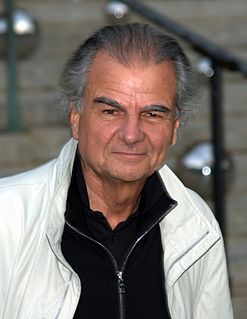A Quote by Mark Cuban
All TV is now digital. It's a platform ripe for innovation; we just haven't seen any beyond picture quality changes. That's a secular problem.
Related Quotes
Local brands evoke national pride, are seen as less profit-oriented, and are often formed on deep local insights. But quality worries persist, innovation is questioned, the information can be woefully inadequate, they are sometimes seen to be opaque and their advertising is clearly recognised as not being of a global standard. For local brands, quality, innovation and transparency are critical hills to climb.
Various studios are still shooting on film with digital grain and the DI negatives, it's not ideal. We should really be all film or all digital. But that being said, the old way of graining in the camera, now you can make changes like a painter. It's dangerous because you can ruin the film, you can over-fiddle. We've all seen films and gone 'what the hell is that?'
Implementing any major changes to the way companies operate requires time and determination and the shift to globally integrated innovation is no exception - it calls for new capabilities to be built, changes in the structure of the innovation organization, new systems, processes and mindsets. The scope and scale of this task shouldn't prevent executives from starting down the path of change as the systemic nature of innovation activities means that every single element of change that's brought about will make a difference.
The problem for me is that I just don't often come across material that speaks to me and my TV education. Before we all had DirectTV and Netflix and Amazon, there's literally 15 years where I saw nothing. Now, I get the pleasure of binge-watching, so now I feel like I'm much more in a TV state of mind, because I binge-watched so many incredible TV shows that now I'm actually a little bit more excited about working in the space.
Whether railroads or electricity or the Internet, there is always some sense that this is the new, redemptive platform - that finally, finally, we've found the platform that will allow us all to lead a democratic, global existence, where all problems will be solved. And the idea that the old platform becomes obsolete, "this kills that," and so on, also often accompanies the advent of a new technology. The digital platform is no exception.
You have a long history of changes in diagnosis, from no touching to touching, to assessing acoustics and visuals. But visual is a problem, because if you're a living being you can't see beyond the surface of the skin. Now you don't have that problem. Laparoscopic surgery, inserting a camera into the body, is sometimes called "Nintendo surgery" - the best training for laparoscopic surgeries has actually been video games.




































